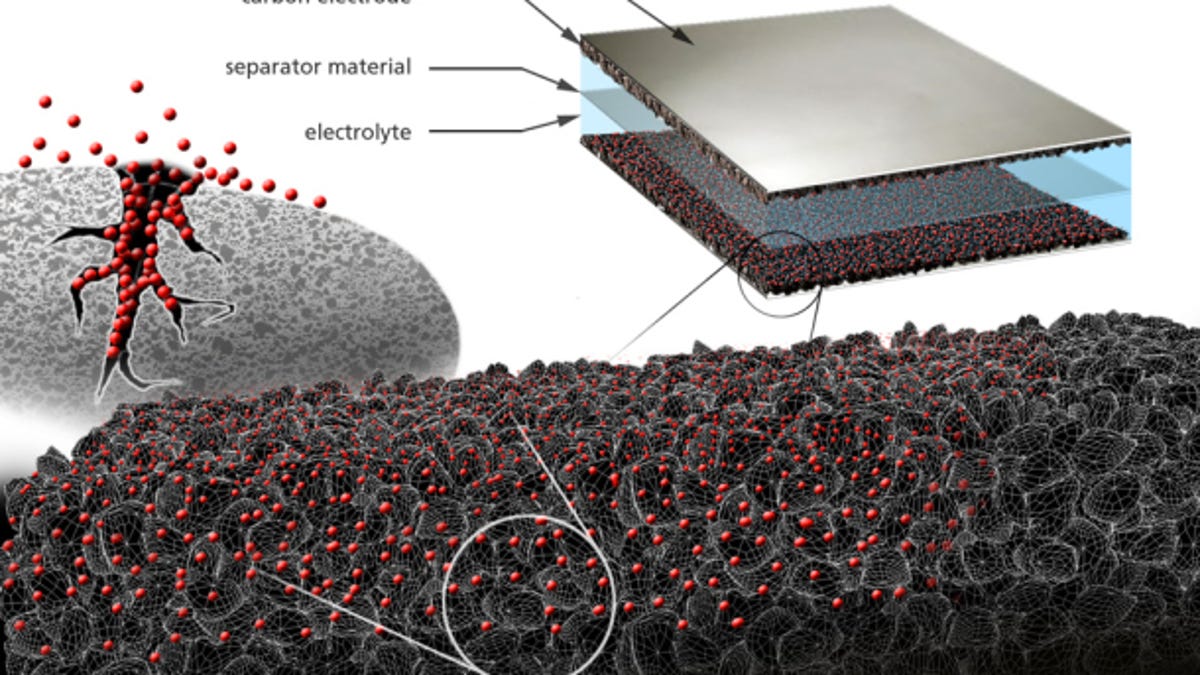Engineered carbon gives batteries, ultracaps a boost
EnerG2 opens a plant to make an engineered carbon that will improve performance of energy storage devices and make storage for start-stop hybrid cars less expensive.

To build a better energy storage device, startup EnerG2 is making better carbon.
The company today flipped the switch on a factory in Albany, Ore., that will turn out a resin used in the manufacture of batteries and ultracapacitors. Its engineered carbon material improves the performance of existing energy storage devices, promising lower prices for hybrid vehicles or grid storage.
The first customers for EnerG2's product are ultracapacitor makers who can expect 25 percent to 30 percent better energy storage capacity, said company COO and CFO Chris Wheaton. Lithium ion and lead acid batteries can get a three times increase in power output, he added.
Ultracapacitors are used in vehicles to provide a quick boost of power or to save energy from regenerative braking. They charge faster and last longer than batteries, but can't store as much energy per weight as batteries. EnerG2's "activated carbon," a very porous form of carbon, will be used in the electrodes of ultracapacitors for storing charge. In batteries, the carbon will be an additive to improve the performance and life of battery electrodes, Wheaton said.
Typically, activated carbon is made by processing coconut husks or other natural materials. EnerG2 is commercializing a process developed at the University of Washington to make activated carbon from a polymer.
The company designs its own polymer, made by a third-party chemical company, and has a method for producing an activated carbon with a more uniform surface than one from natural sources, Wheaton explained. That allows ultracapacitors to handle and store more electric charge, he said. "Our material is more robust because it's more pure. Materials with more contaminants cause break downs at higher voltages," he said.
The plant in Oregon will start producing engineered carbon for energy device manufacturers which could start showing up in products in six months to 18 months, Wheaton added. In 2009, the plant was awarded a $21.3 million grant to partially fund the facility. Nearly all activated carbon is made in Japan now, Wheaton said.
Auto companies are considering different energy storage methods for hybrids, including start-stop hybrids which improve mileage by about 5 percent for a relatively low incremental cost. Some automakers are considering ultracapacitors for start-stop hybrids. Wheaton said improvements to lead acid batteries could make them more competitive for start-stop hybrids.

